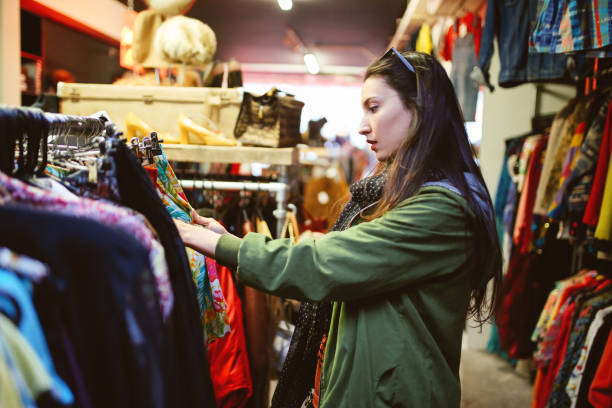10/4/2024: The fashion industry is at a turning point in its history because of the attention it is receiving for its ethical and environmental practices. The demand for sustainable and ethical fashion is increasing as consumers become more aware of how their purchases affect the environment and its people. This article explores activities in several fashion industry sectors and explores the significance of sustainability and ethics in the industry.
The Raw Material Sector: The Foundation of Sustainable Fashion
Sustainability begins with the raw materials used to create fashion items. Cotton, one of the most widely used materials, has a significant environmental footprint due to water consumption and pesticide use. Organic cotton and alternative materials like bamboo, hemp, and recycled fabrics offer more sustainable options. Ethical considerations also come into play, with fair trade certifications ensuring that farmers receive a fair wage and work under safe conditions.
Design and Manufacturing: The Heart of Ethical Practices
The design phase is pivotal in determining a garment’s environmental impact. Designers are now embracing zero-waste and upcycling methods to minimize waste. In manufacturing, ethical practices are equally crucial. This includes providing safe working conditions, fair wages, and rights for workers. Brands are increasingly transparent about their manufacturing processes, allowing consumers to make informed choices.
Distribution: Reducing Carbon Footprint
The transportation of fashion goods contributes significantly to the industry’s carbon footprint. Brands are seeking to reduce this impact by optimizing logistics, using eco-friendly packaging, and choosing transportation methods with lower emissions. Locally produced fashion is also gaining traction, supporting local economies and reducing transportation distances.
Retail: Promoting Ethical Consumption
Retailers play a vital role in promoting sustainable and ethical fashion. By curating collections from responsible brands, offering garment recycling programs, and educating consumers about sustainability, retailers can influence purchasing decisions. Some retailers have also implemented sustainable store designs, using energy-efficient lighting and recycled materials.
The Role of Consumers: The Final Step in Sustainable Fashion
Ultimately, the power lies with consumers. By choosing to buy less and opt for quality over quantity, consumers can drive change. Supporting brands that align with sustainable and ethical values, repairing and repurposing clothing, and participating in the circular economy are ways individuals can contribute to a more sustainable fashion industry.
Conclusion: A Collective Effort for a Sustainable Future
The journey towards sustainable and ethical fashion is complex and requires the collective effort of all industry players, from raw material producers to consumers. By embracing sustainability and ethics at every stage, the fashion industry can mitigate its environmental impact and ensure fair practices. As we move forward, it is clear that sustainable and ethical fashion is not just a trend but a necessary evolution of the industry.
This comprehensive approach to sustainable and ethical fashion demonstrates that change is possible and is already underway. It is an ongoing process that demands innovation, commitment, and collaboration. The fashion industry has the potential to be a force for good, creating beautiful, high-quality garments while respecting the planet and its people. The time for action is now, and every step taken is a step towards a more sustainable and ethical world.


